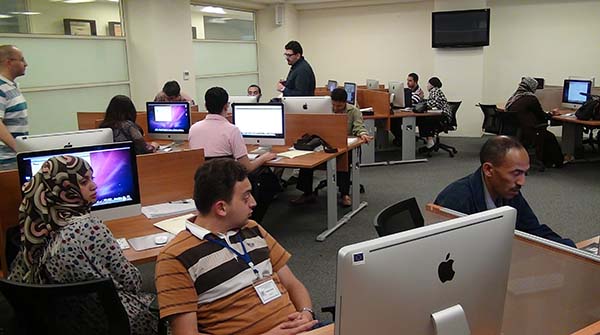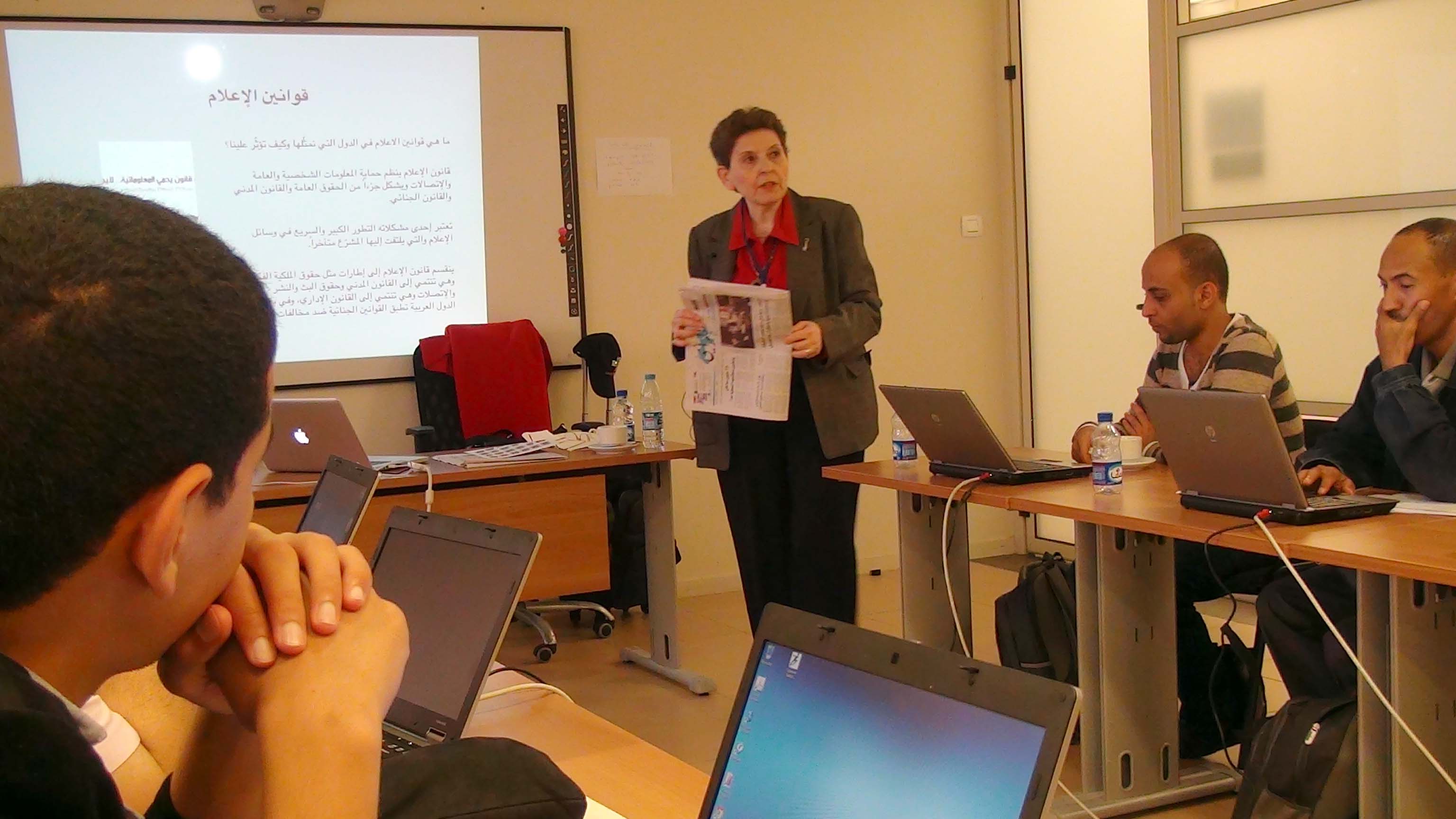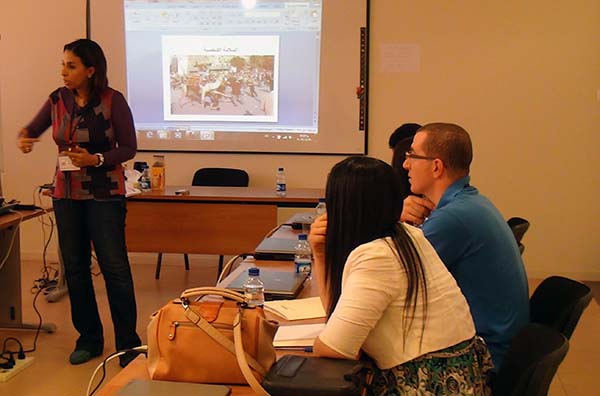Digital skills for journalists and activists are required for success in today’s world, but a key component is knowledge of media laws and ethics to protect oneself and avoid problems.

Amr Eleraqi shows journalists, activists how to use interactive tools
Media Unlimited director Magda Abu-Fadil provided tips and reviewed legislation from countries represented by journalists and activists who attended the “Building a Digital Gateway to Better Lives” boot camp in Amman, Jordan.
Abu-Fadil provided a tour d’horizon of current and proposed legislation affecting print, broadcast and online media in the participants’ home countries.

Print and online media laws in Jordan explained
She underlined common problems like various forms of censorship, harsh licensing procedures, penalties and legislators’ lack of understanding of what and who journalists are in the 21st Century.
Another crucial issue in the multimedia world is ethics for bloggers and what defines ethical behavior is an otherwise fluid landscape where platforms and tools converge.
Abu-Fadil showed jarring footage disseminated via social media of what she said was unethical conduct and complemented it with case studies of how traditional media handled, or mishandled, news coverage.
Trainees engaged in animated discussions on what constitutes ethics, how to define privacy, whether doctored or misleading photos and videos should be published, sourcing and attribution ground rules, and, a host of issues plaguing bloggers.

Abu-Fadil explains nuances of sourcing ground rules
Other trainers at the five-day boot camp helped participants with live coverage for events, using interactive tools to enhance websites, creative storytelling with video, advanced safety for journalists, and building an effective presence on social media.

Veteran Egyptian journalist Abeer Saady’s advice on personal safety
The training, held at the Jordan Media Institute, was organized by the Washington-based International Center for Journalists in August 2013 and grouped participants from Jordan, Egypt, Lebanon, Yemen, Morocco and Iraq.





